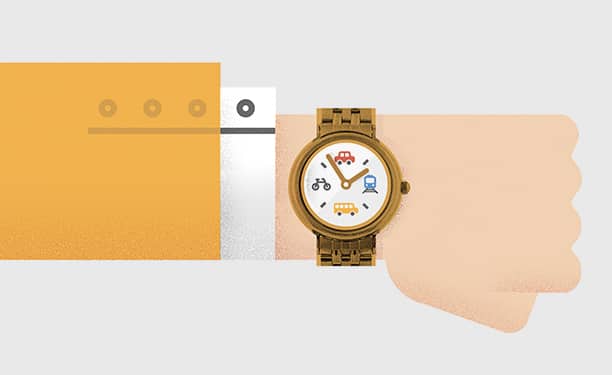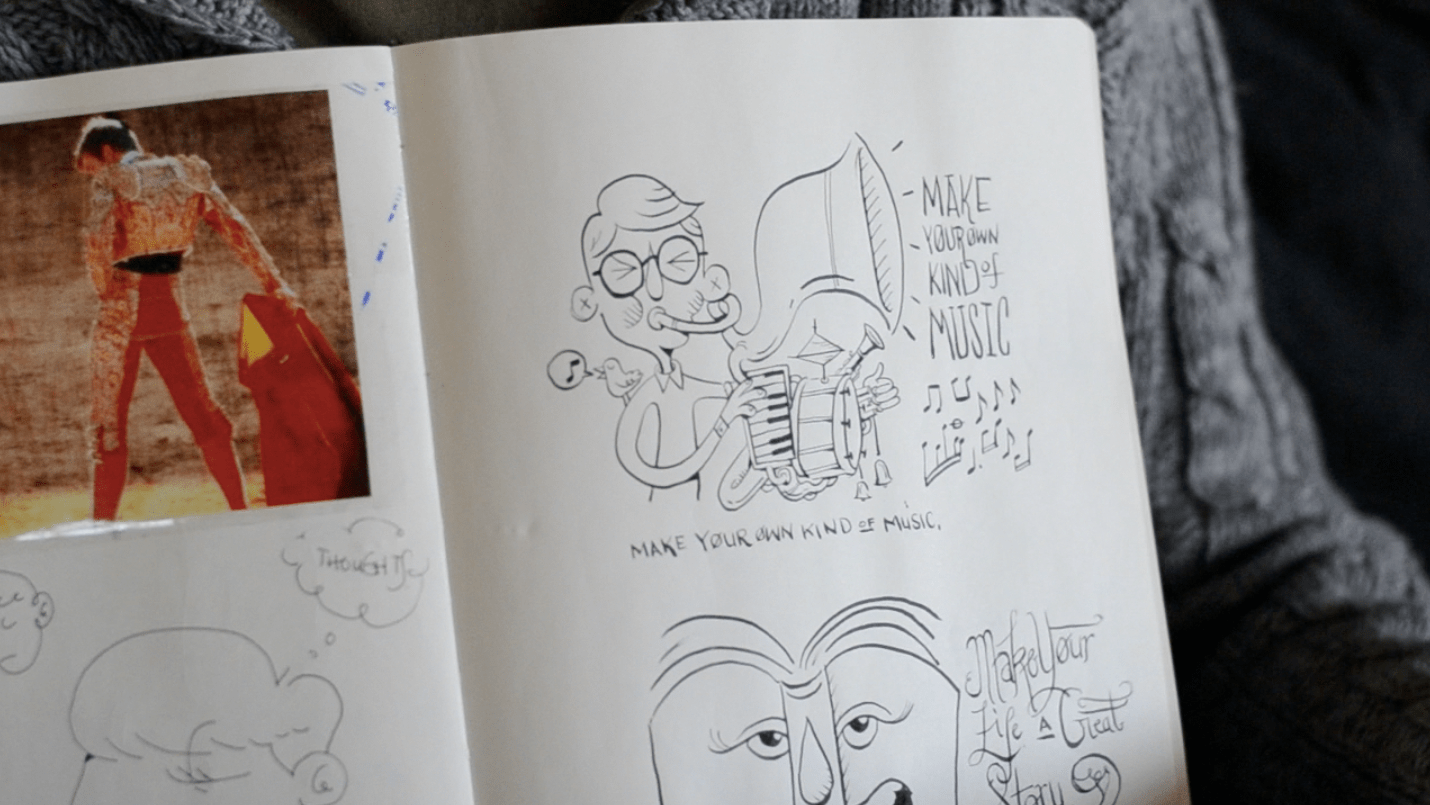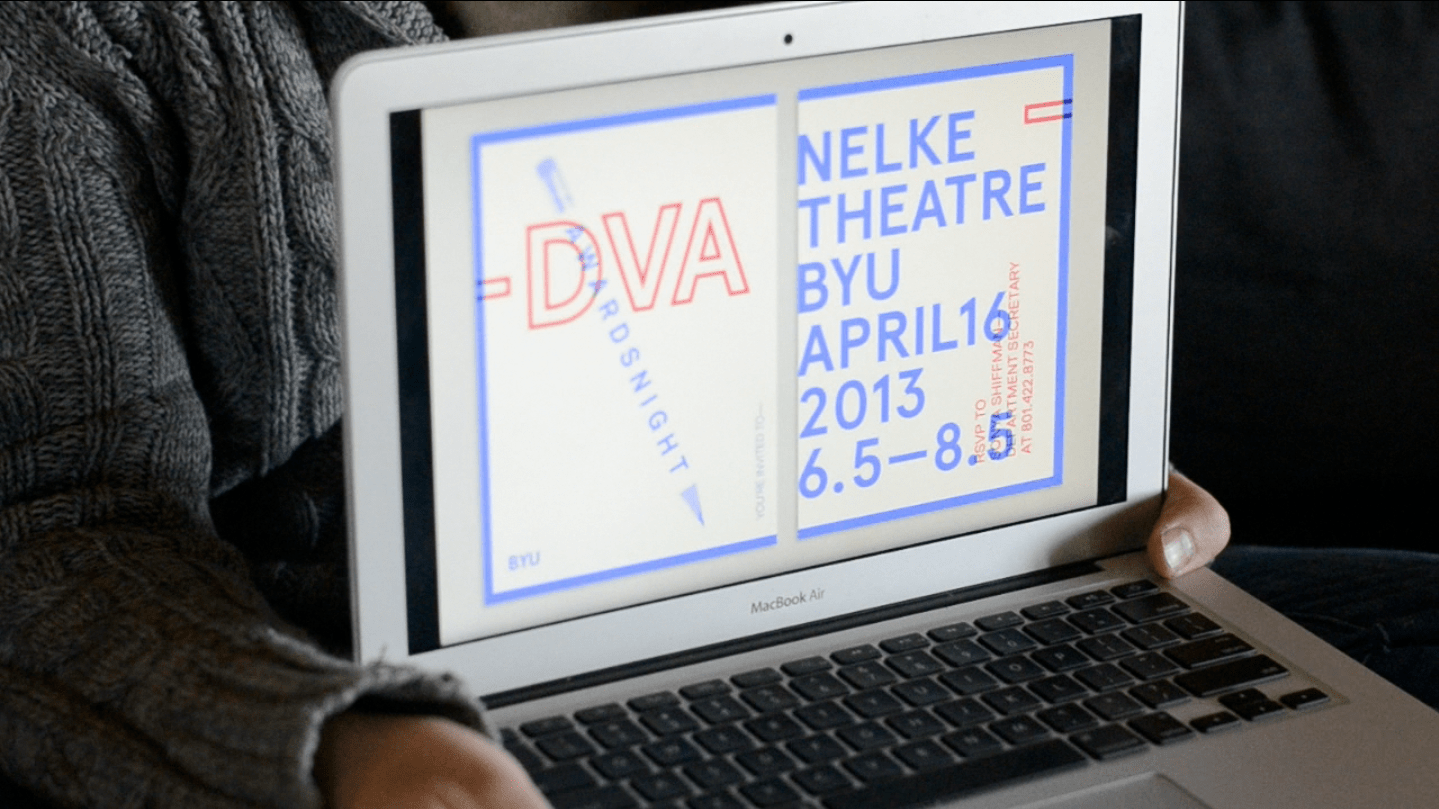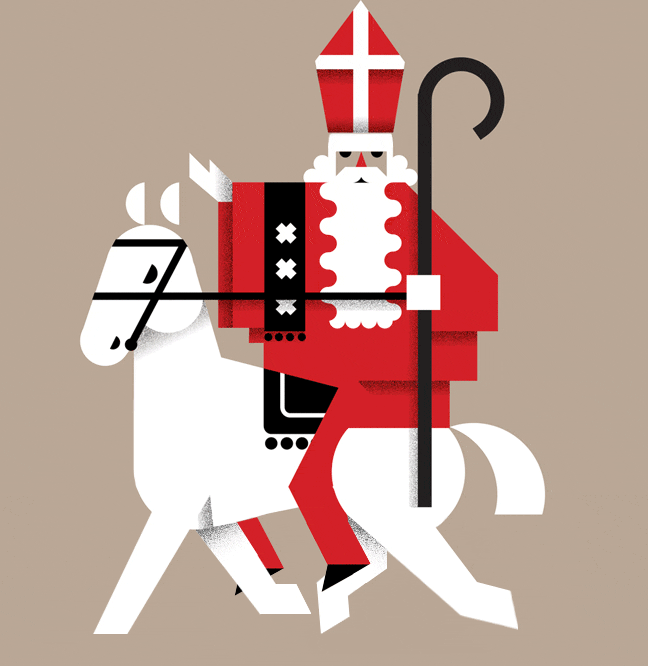Andrew Colin Beck
Andrew Colin Beck is a graphic designer from Provo, Utah. Andrew's work is lovable and illustrative in style. He's kind, genuine, and very enthusiastic about his work.
Our interview took place on April 3, 2013 at his home in Provo.
What are you most passionate about?
Well, aside from people and relationships in my life, because I'm passionate about that, I would say I'm really passionate about… I've always been obsessed with the idea of potential. I feel like I've been given a lot of potential, so I feel the need to reach it, if that makes sense. I feel anxiety if I'm not dedicated towards trying to figure out the full measure of my potential.
I just feel like I owe it to my potential. Because not everybody gets blessed with—this sounds really pompous, but—not everybody gets blessed with a huge amount of potential, and I feel that since I have been, not by my own means, but been given potential, I feel that I owe it to God, or to myself to push myself to reach it.
I'm really passionate about quality and beauty, because I feel like most of the world is swimming in really scary mediocre crap. I think mediocrity is scarier than failure or really crappy stuff.
I would come home from school and do something artistic just because I needed to. And I didn't even realize I was doing it. I would just come home and design something or draw stuff for fun, and eventually my wife said, 'Why don't you major in design? Because that's what you like.' And I said, 'Oh my gosh, you're right!'
Why is that?
Because I feel like it's easy to dismiss something that's terrible—you can just say, Oh, that's horrible. But something that's mediocre can pass as good, and fool people that it's good. And the more and more of that type of stuff that builds up dilutes what really is good. So I'm really passionate about trying to make things that are really beautiful or really true or really good; quality.
When did you realize that you had your potential?
I don't know…it's just indicative of who I am as a person, because I've been drawing ever since I was a little little kid, so maybe potential isn't even the right word. I was given the talent of art, I was always driven to do it because it was so enjoyable and pleasurable to me. And still, when I'm working on something hard, I'll stop working on it and go draw. That's my guilty pleasure, because drawing is just really fun for me to do. So in a way, it's a natural thing.I'm not driven like a businessman, like "I have to be GREAT," it just makes me really joyful to draw and create visual things.
So you asked me when I thought I had potential: there's not really a moment that sticks out to me, but it's just what I've always done because it brings me joy, creating things. I'm passionate about creation, just creating something. Because I've noticed it doesn't matter what it is, but in order to be happy, I need a creative outlet. I majored in psychology for 2 years, and I enjoyed it because I love people and I love figuring out what they're like, and I love communicating and learning about people, but every day I would come home from school and do something artistic just because I needed to. And I didn't even realize I was doing it. I would just come home and design something or draw stuff for fun, and eventually my wife said, "Why don't you major in design? Because that's what you like." And I said, "Oh my gosh, you're right!"
What's funny, though, is I notice that if I'm not doing design, I'm writing music. For me, that fills the same need I have to be creative. And if I'm not writing music, or doing graphic design, I love to make movies or animate stuff. So it doesn't really matter to me how I'm being creative, but I just need to be creative. It fulfills me, it makes me feel happy to make things, to bring things out of nonexistence into existence that make life more enjoyable, or please someone, or serve some person.

What about on a day to day basis? What does it take for you to feel fulfilled at the end of a day?
So I'm kind of making this up, but I think I'm usually fulfilled every 2 days. Normally I'll work on something all day, and go to sleep kind of begrudgingly because I have to, and then I don't really feel fulfilled. But then I wake up the next day and look at what I created the day before, and usually, unless I haven't done a good job, it brings me a wave of satisfaction. Normally I have to take a break before I can enjoy my work, because I've been staring at it all day.
There's always this moment for me when I'm creating something—whether it be design, or music, or film—usually in the middle, I get nervous and think "This is not gonna work out." I get worried that it's not going to become what I was hoping. And that's kind of nice: that fear and uncertainty that you're going to fail. Because I think that's what brings the satisfaction; you got through it, and you built whatever thing you were hoping to build, and it turned out the way you hoped it would. And of course that doesn't always happen, but I'd say for the most part it does, and that brings me great satisfaction.
So having an idea that I want to bring into existence, and then doing it and seeing that it works, that's what really makes me happy.
Do you think that if you don't have the fear, you can't get as much satisfaction out of it?
Yeah. It's kind of what Adam and Eve learned. They couldn't understand joy if they couldn't understand sorrow. I think it's that uncertainty that makes it an accomplishment. Because if you're totally certain that you can do something, it might be kind of pacifying to do it over and over again, but not a challenge. I try to do something I've never done before every time I do a new project. My client doesn't ask for it, I just think: this time, I'm going to incorporate this skill that I don't know how to do. It adds an edge and I feel a greater sense of accomplishment when I use some typographic thing I've never done before or try a style I've never done.
And I don't know if this is important, but i've noticed that the things that don't make me feel fulfilled at all are…like money. I honestly forget to charge my clients. I work at the university, and I forget to clock in because I just get so excited about creating. So that doesn't bring me fulfillment at all—getting a check is nice because I know we're not going to die, but not fulfilling.
Have you ever had a project where you don't want to work for someone else, and how have you coped with it?
I found that happened a lot more with small companies that have never worked with a designer, because they want to be more hands on and don't have very much trust in you. I feel like they're the ones who ask you to do things you don't want to do and make you less excited about a project. But I feel like the bigger, more intelligent design-savvy clients I've worked for never do that. They know their job is to find you you because they love what you're doing, and they trust you, so their job is to say "Okay, here's the assignment, now do your thing." That's why they like you. So I don't find that as much anymore, but I know when I was first starting as a designer that would bother me.
So how do you cope with that when that is happening? I haven't done this in a while, but I like to help clients understand my role and their role in what we're doing. Some people probably don't think you should do that, but someone has to teach them at some point what designers are supposed to do, so I'm happy to do it. I actually like hard conversations like that, they're exciting. Some part of me wanted to be a lawyer, so I sort of like dicey conversations. But that's kind of weird.
So you wanted to be a lawyer, and you did the psychology thing, and I can relate to that because I'm interested in so many things. But I can't do everything I want to the extent that I want to, because of time. How do you balance the things you want to do, and what have you had to sacrifice? You just had a kid, and that's going to take some sacrifice.
That's actually been really difficult for me because there's a lot of things I really like doing , that I'd like to do as full-time as I do design. For example, music . I love writing music, and I love playing in bands, and recording music. That's so fulfilling and even has other special parts of it that design doesn't have. It was really hard for me to prune off the branches of what I wasn't going to do, and just decide on design. It was really difficult. I just had to sacrifice all the other careers I would have enjoyed, but it was a really worthy sacrifice, because I find that design brings me the most satisfaction. And the way that I found that is, when I go to sleep at night, I think about design. Even before I was a designer, it just kept me up at night. I love the visual stimulation of simple graphic shapes, it gets me excited. Music of course excites me; I love it. But my excitement for design just overpowers other things. I think that's how people should choose what they do for a living. Whatever makes them so excited to wake up. I would do design even if no one ever paid me to do it, so that's what signaled to me that it's what I should do. And I didn't pursue music because I think it's really enjoyable and fun, but I'm not that good at it (laughs) so I thought I'd leave it to somebody else who is really good at it.

Can you show us something you've been working on?
Kind of like I said before, for this project I learned a new skill that really excited me, which was I bought a quill and ink, which I've never done before. Before, I'd use a ballpoint pen, which I really love doing, but this is a new skill that I acquired for this project, and it was so fun. For like four days, I just filled my sketchbook with quill and ink drawings because it was this new world: you have thicks and thins, and the ink runs out, and it has lots of cool idiosyncrasies to it, so that was really exciting and enjoyable to me.
I've been working on some stuff for the university. They have an awards night coming up, and I'm supposed to do the announcements and posters. I really like strange austere Dutch typography, like this style I'm going for here. I've been experimenting with it because I think it's such a cool style and really valuable. I love how experimental the typography is in that style, and it's on the cusp of looking bad because it's so strange, and it's not necessarily really pleasing, it's almost tongue in cheek, like sort of crappy, but in the coolest way possible. So that's been fun. And it's been fulfilling for me because I feel like I'm succeeding in making that look come alive, which is not something I'm familiar with, because I usually just draw wizards.

When you think about your career, is there anything you're afraid you'll never accomplish?
No. There's just things I want to accomplish, and it's okay if I don't. I want to get an illustration, and it'd be great if it was more than one, but I'd love to get an illustration in the NY Times, or Wired, or some big publication. So that's a goal I have, but I have like sixty years to do it, so I'm just hoping that it's going to work out. I had someone cut my logo into a metal sign, and that was one of my life goals, to have a design that I made cut in metal.
Also, I've been thinking about what drives my passion, and I think it's curiosity. I wouldn't say I'm passionate about curiosity, because it's not like I read books about curiosity. But I feel that my passion is driven by it. I'm just a really curious person in general—I think that's why I'm a psychologist and musician too, because I want to know why do people do this, and why am I like this, why are you like this, or how do you do that? I guess it doesn't apply to everything because I don't want to know how to fix cars or anything, but I think that's what drives me to be creative: I'm curious, and I love to find things out or try things. I would love to learn how to cook and be good at experimenting with things, but I just don't feel like I have enough time.
Another example is: I know how to play a lot of instruments because I like music a lot, and my house was the band house, which meant everyone left their instruments at my house, so when they were gone I would pick one up and try to figure it out. So I learned how to play a lot of instruments. I can play the drums, saxophone, piano, guitar, bass, accordion, and guitar, and that's because I was curious. I thought they were cool and I wanted to assimilate them into things I know how to do. So I don't like everything, but I do love trying new stuff and to learn.
I've had clients ranging from my brother to the Salvation Army, but I still feel like the wizard of Oz, telling people to pay no attention to the man behind the curtain.
Talk about one of your communities.
I've often wondered to myself why God didn't put each of us on one planet where it's just you and the planet and that's it, and why we need to exist in a society. And I think it's because your interactions with people are so important to who you are and what you learn and how you work. My communities are dribbble for design, and school is a huge community for me right now. We have critiques and talk to each other and look at each other's work, and that's really important to me. So my professors and my peers are in that community. And then friends like Kyle, that's a community for me as well because I like to see what they're doing and what they think about what I'm doing. I guess my family is a community; I like my family because they're not designers, so I can get from them the perspective of the "layman." My wife's getting too smart, though, she'll say "Oh, that kerning is off," and I tell her she's not a normal person anymore.
What does the dribbble community provide for you?
I've been trying to get everyone at school on dribbble, because it's afforded me with all of the professional opportunities I've had so far. A lot of job offers come through dribbble; I found my internship with Edenspiekermann through dribble; 've got a few job offers for when I graduate that are all through dribbble. I just feel like there's a lot of value in a lot of different ways, but for me it's about the connections that it offers and just the community that it connects you to. It's also a source of inspiration.

When was the first time you felt like a real professional?
I don't know if that's happened yet. I've had clients ranging from my brother to the Salvation Army, but I still feel like the wizard of Oz, telling people to pay no attention to the man behind the curtain. I don't really feel like a professional. I'm hoping to and trying to work in circles with professionals, but I don't know that I feel that I am yet.
If you had to sum up advice to other creatives in just one word, what would it be?
Can I do two? The first one I would say is "Look." Because finding inspiration and getting inspired by great design and great art is really important. I have a lot of friends that are around 30 or so that are graphic designers, and their careers are coming to a standstill, and I feel like they're not looking at design anymore. They thought they "got it," so they said "Alright, now I've got it!" And now they get stuck in their decade and they don't try new things. I'll ask them where they look for inspiration and they don't know what I mean. So I think it's important to look at great design. My morning routine is to look through dribbble and go on designspiration—my professor calls it "fill the well." I think it's extremely important to find things that spur you on and make you excited to try something yourself.
So that's one. And the other one would be "Make." I feel like the more you do, the more design or art that you just do more and more of, the more you're going to eventually learn the nuances of what you're doing. Sometimes I think people want to make something and say "It's great!" but I think you have to make 400 somethings, and then the 401st something is alright. I feel like I make a lot of work because I'm driven to do it, but if you're not driven to do that, you should probably force yourself to do it, because that's what helps me; just doing a lot, and trying a lot, which includes failing a lot and succeeding a lot. I think that's what they tell painters—paint a million paintings and then you can sell one.
I had a professor who taught that everyone has 10,000 crappy drawings in them; you have to get them all out before you can make good ones.
Nice, exactly. I think that eventually the ratio of how much work you do to how much of it is successful begins to climb. But that doesn't mean you don't still have to do a lot of work. For me, when I don't have jobs to do for clients, I just make stuff anyway. Because I want to, and I feel like I need to in order to keep myself sharp and inspired.
